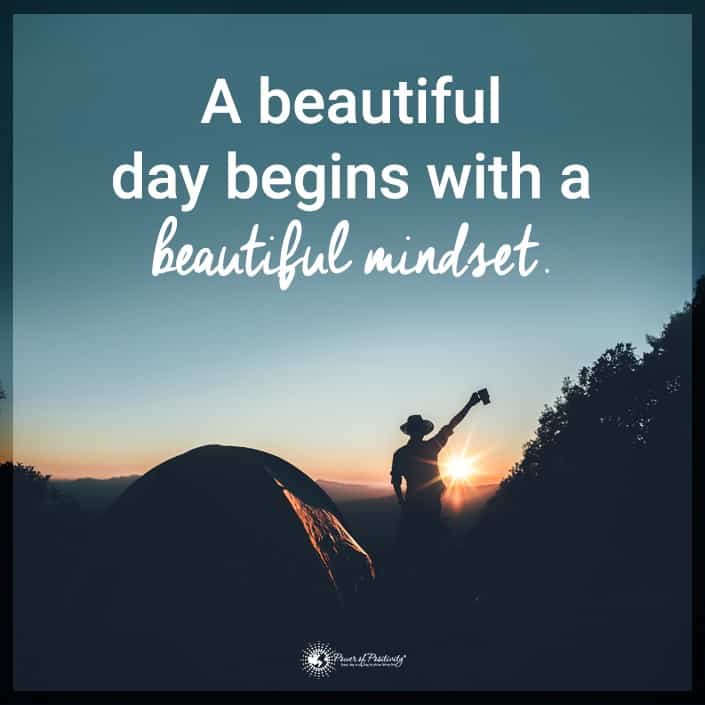These days, keeping your self-efficacy in check is more important than ever. Life was already tough, but the pandemic made things almost impossible for some people. While some were affected more than others, almost everyone felt the effects of this global crisis in one way or another.
That’s why this new study that was published by researchers at the University of Zurich is particularly refreshing. According to them, people can boost resilience simply by reflecting on what they’re capable of. This is great news since it’s a simple solution to the mental chaos people have been going through.
Details of the Study
The researchers conducting the study are from the Departments of Psychology, Psychiatry, and Psychosomatics, all from the University of Zurich. Christina Paersch, MSc, was the lead researcher. The other researchers on the project were Ava Schulz, Frank H Wilhelm, Adam D Brown, and Birgit Kleim.The study included, though very insightful, was relatively simple. It included 75 subjects. These subjects were instructed to recall an incredibly stressful and negatively emotional memory.
They were then divided into two groups. One group was instructed to vividly recall a positive event while the other group was instructed to recall a time they felt extremely self-efficacious. Then they were instructed to recall the negative emotional memory again.
Researchers found that the group that recalled their self-efficacious moment were better able to view the negative emotional memory in a different light than the other group. They had an easier time coping with the negative memory; some of them had an easier time after only one time recalling their self-efficacy.
The researchers stated, “our study shows that recalling self-efficacious autobiographical events can be used as a tool both in everyday life and in clinical settings to boost personal resilience.” In other words, just remember how tough you are. Remember what you’re made of and it can get you through tough times.
What is Self-Efficacy?
The term self-efficacy was coined by psychologist Albert Bandura. He defined it as a person’s belief in their ability to handle and succeed in each situation. In short, it’s believing in yourself.
Strong efficacy in yourself isn’t something that just happens or occurs. Just as unique life experiences change a person’s efficacy, it also changes how they view themselves. This point of view gets developed over time and can be influenced by outside factors such as family/friends, socioeconomic status, health, and more.
It can seem that some people believe in themselves a lot more than others. You may not be consciously aware of your self-efficacious nature but, according to Bandura’s theory, everyone develops some level of self-efficacy. Luckily, it can also be strengthened. As Bandura stated in his book Self-Efficacy: The Exercise of Control, “Ability is not a fixed property; there is a huge variability in how you perform.”
Many influences can shape a person’s efficacy in themselves. Bandura identified four primary influences that help to shape a person’s level of self efficacy. These influences are:
- Past Performances
- Vicarious experiences
- Verbal Encouragement
- Physical feedback
Past Performances
Past performances, also referred to as mastery experiences, are the most significant influence on self-efficacy, according to Bandura. Remember, that was the basis of the study from the University of Zurich – focusing on something they performed well to ease the burden of the negative memory.
This is almost like a catch-22, remembering something you did well to convince yourself that you can do something well. How can you do well if you need to have done well in the past to motivate yourself? Where do you start?
According to Bandura, a person must revisit the old saying, “practice makes perfect.” Just practice and keep getting better at what you’re doing. The better you get at it, the more you’ll boost self-efficacy. Once you master it, your self-efficacy can always be significantly increased by remembering how good you are.
Bandura suggested that it’s not so much the skill level that increases a self-efficacious nature. It’s more the idea that you are able to learn a new skill well. Having the ability to do something gives you a great ego boost.
Vicariously Living Through Others
Vicarious living is when a person watches another person’s performance and compares that to their own. Essentially, watchers are being persuaded that they can do something by watching and learning from someone else. The person they are watching becomes something akin to a role model.
You might not consider having a role model as an adult. But many people don’t even realize they have a role model. They have someone close to them – a teacher, coworker, family member, friend, boss, etc. – that they look to for inspiration and guidance. Sometimes this can even be a celebrity. Whoever the person may be, and for whatever reason, they inspire motivation and confidence in the watcher.
Verbal Encouragement
When a person gets encouragement from someone, especially their role model, it helps to boost their confidence and their belief in themselves. That’s why so many companies reward their employees with performance-based recognition and/or gifts. These companies know that a little recognition can go a long way in boosting the morale and efficiency of their staff.
Getting a boost from verbal encouragement is hardwired into the brain. It’s human nature to behave like that. The dopamine system in the brain is activated when a person gets a reward. This system then encourages the person to repeat the activity to get the reward again.
In fact, the dopamine system also provides you with a memory boost so you’ll remember exactly what you did to get the reward. This is a part of the human survival instinct. These days, we aren’t in survival mode, but the boost in self-confidence helps other areas of life.
Physical Feedback
Bandura wrote, “people experience sensations from their body, and how they perceive this emotional arousal influences their beliefs of efficacy.”
Your emotional, physical, and mental health affects everything you do. This includes being able to believe in yourself. For example, if you’re depressed, it can be hard to have self-confidence. If you’re fatigued or sick, you don’t have the energy to accomplish much, which can negatively affect your self-efficacy.
This doesn’t mean it’s impossible to have good self-efficacy when you’re not feeling your best. It just means it’s harder. Some people will excel no matter what. However, taking care of your health makes sense when you’re trying to push yourself to be great.
How to Build Efficacy in Yourself
You’ve already read about the number one influence on efficacy – past performances. It makes sense to start here when trying to build efficacy in yourself. However, to have past performances to reference, you must have performances. In other words, start challenging yourself!
Start by setting goals. They don’t need to be significant, grandiose goals. They can be small goals that are SMART. This is a popular acronym that is often used to achieve goals.
SMART Stands for:
- S – Specific
- M – Measurable
- A – Attainable
- R – Relevant
- T – Time-bound
Goals need to be specific so you know exactly what you’re aiming for. You should be able to answer the five W’s when it comes to your goals: who is involved, where is it located, what do you want to achieve, why you want to achieve it, and which resources you need to achieve it.
A goal is measurable if you’re able to track your progress. It could be a quantity, period, or another measurable unit.
A goal isn’t a good goal if it’s out of the realm of possibility for you. For example, you can’t aim to be a millionaire in a month. That’s just not realistic. When setting an attainable goal, remember to make it make sense.
A goal needs to be relevant to you and your situation. There should be some reason for wanting or needing to achieve the goal. The goal should make your life better in some way.
And finally, you need to give yourself a time frame to achieve the goal. Not having a set amount of time to reach your goal is a great way to give yourself an excuse to not achieve it.
These criteria ensure you set reasonable goals. If you use this acronym when setting your goals, you’ll be much more likely to achieve them because the acronym keeps you organized. SMART is essentially a roadmap to creating past performances for you to pull from when building efficacy in yourself.
Final Thoughts on Self-Efficacy
The study provided proof of a theory that researchers and scientists have had for a long time. Building self-efficacy is internal – a person can increase it or decrease it all on their own. Sure, there are outside influences, but ultimately, it’s based on how the person feels about themself.
If you’re a person who struggles with self-efficacy, don’t wait another minute before you start building it up. Set goals – small ones. Get up on time. Iron your clothes today. Start a gym membership (even if you don’t work out today).
The achievement of any goal, even small ones, is enough to help you start believing in yourself. Eventually, you’ll feel that you can do anything, and your efficacy in yourself will be higher than ever.



















